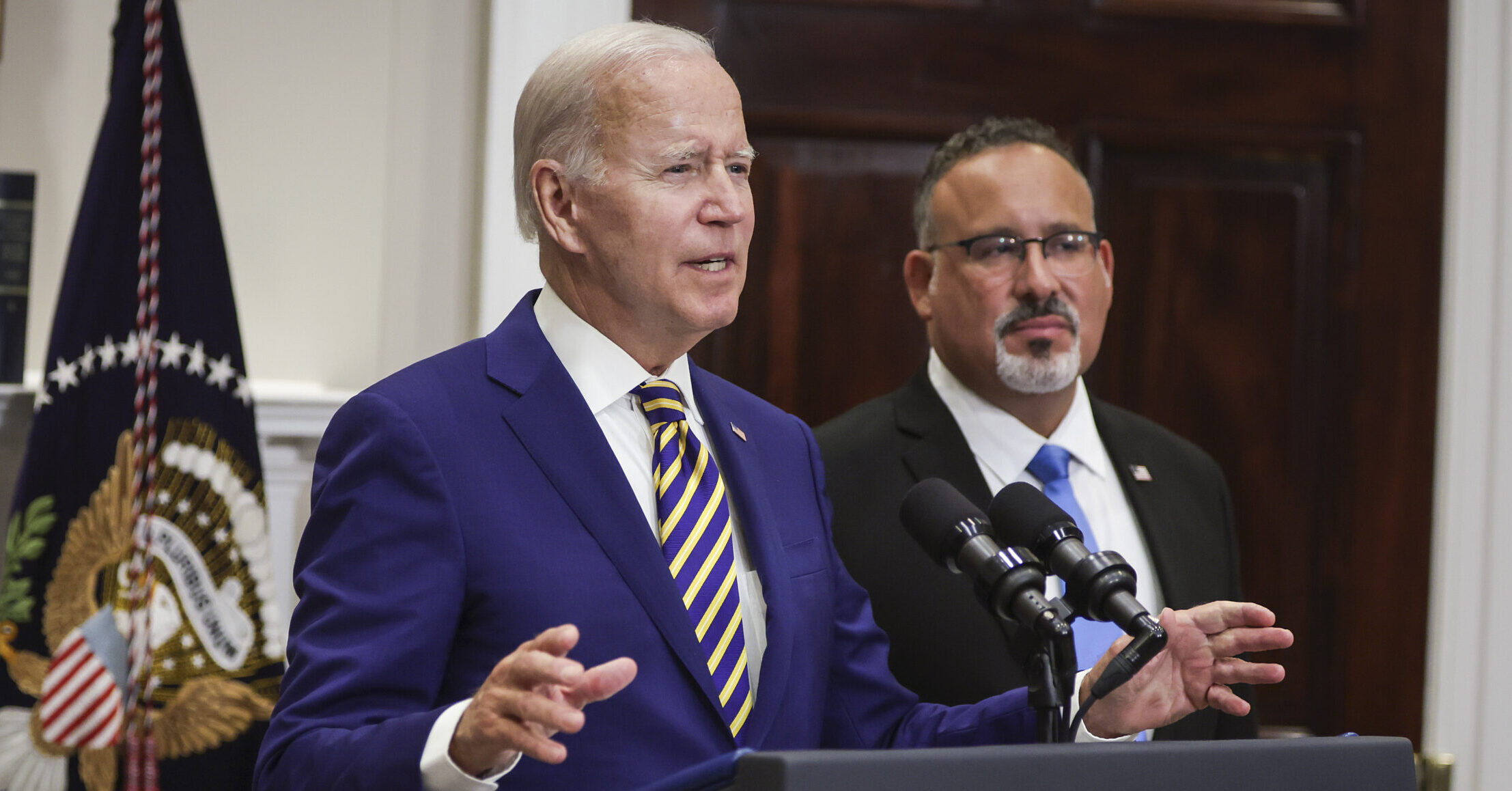Obama’s Top Economist Shreds Biden Student Debt Relief Plan: ‘Worse’ Than ‘Reckless’

Alex Wong/Getty Images
Jason Furman, the one-time chief economist to former President Barack Obama, criticized President Joe Biden’s sweeping student loan forgiveness plan Wednesday.
The White House announced individual loan borrowers earning less than $125,000 annually will receive $10,000 in debt forgiveness. The same goes for borrowers who are married and whose household income is less than $250,000 per year.
For borrowers who have received PELL Grants, the amount being forgiven doubles to $20,000. The White House is also reforming long-criticized, income-driven repayment plan rates.
The decision has been months, if not more than a year, in the making. It is being celebrated by student debt relief advocates, but criticized by many Republicans and some Democrats, given the country’s sky-high inflation.
One prominent critic was Furman, who argued the forgiveness, which might be somewhere in the ballpark of $300,000,000, is “reckless,” if not “worse.”
“Pouring roughly half trillion dollars of gasoline on the inflationary fire that is already burning is reckless,” tweeted Furman. “Doing it while going well beyond one campaign promise ($10K of student loan relief) and breaking another (all proposals paid for) is even worse.”
Pouring roughly half trillion dollars of gasoline on the inflationary fire that is already burning is reckless. Doing it while going well beyond one campaign promise ($10K of student loan relief) and breaking another (all proposals paid for) is even worse.
— Jason Furman (@jasonfurman) August 24, 2022
Furman elaborated in subsequent tweets.
BTW, those examples also contradict the baseline some have concocted to claim that this won’t raise inflation. The claim it won’t raise inflation is based on the construction worker going from permanently paying $0 interest to paying $31 a month at an annual cost of $372.
— Jason Furman (@jasonfurman) August 24, 2022
Also need to be careful with all of the distributional numbers because the beneficiaries will tend to have higher lifetime incomes than current incomes. A 24 year-old making $75,000 is likely to be at a relatively high percentile on a lifetime basis.
— Jason Furman (@jasonfurman) August 24, 2022
Most importantly, everyone else will pay for this either in the form of higher inflation or in higher taxes or lower benefits in the future. I did a thread on this last night but given the new announcement you need to double everything in it. https://t.co/CJ7aPYyAw3
— Jason Furman (@jasonfurman) August 24, 2022
That is a relatively small inflation number. But would take about 50-75bp on the fed funds rate to extinguish that much inflation. Is the Fed going to try to offset this? Or will it do what it did with the American Rescue Plan and ignore that rapidly changing fiscal landscape?
— Jason Furman (@jasonfurman) August 24, 2022
P.S. I like the reforms to income-driven repayment. But I would much rather have seen them passed by Congress as part of a law that fully paid for them rather than done unilaterally and unpaid for in the context of an already extremely expensive package.
— Jason Furman (@jasonfurman) August 24, 2022
—





Comments
↓ Scroll down for comments ↓